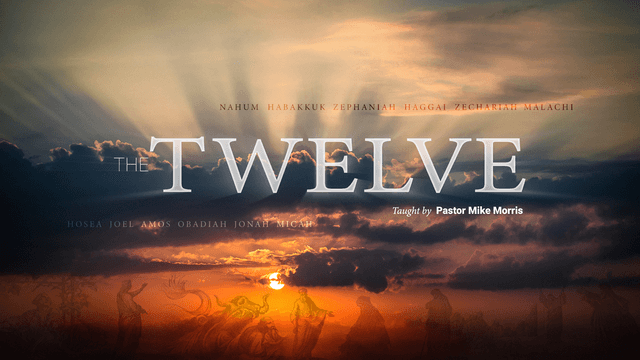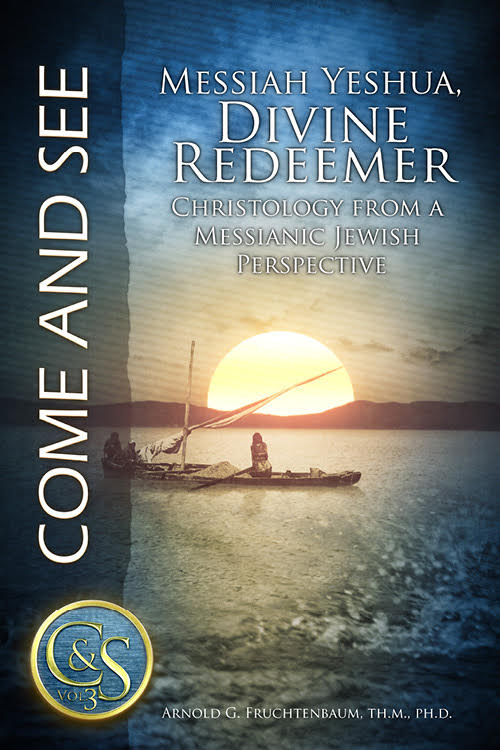Sunday Service 9am & 11am
Wednesday Service 7pm
(210) 920-6502
551 E Nakoma St.
San Antonio, TX 78216
Join a small group to study this sermon with like-minded believers.
Zephaniah 1:1-2:3
LISTEN. STUDY. APPLY
Video
Manuscript
Today we begin our study of a rather short book, the book of Zephaniah...this is one of the books that even some long-time Christians might not recognize as a book of the Bible...it probably isn’t one of the first books to come to mind...in fact, checking in your table of contents may be the best way of finding it...but despite its short length – a total of 53 verses in just three chapters – it contains some deep truths we need to know, and the second half of the book contains one of the more beautiful depictions of our loving God in all of Scripture
As we always do when we begin a new book, we need to set the book in its context in the Bible...it is one of a group of texts called the Book of the Twelve in the ancient Hebrew Scriptures, which were regarded by the Jews as a single entity...
As we look at the timelines of the two Israelite nations, Israel in the north and Judah in the south, we can place this prophecy firmly in its place...let’s look at the two timelines...
The voices of the prophets ceased in the north as the Assyrians crushed Israel, taking them into captivity in 722 BC, an exile from which they never returned...
Judah endured for another 135 years before falling to the Babylonians, the nation which conquered the Assyrians...Micah was the transitional prophet of the Twelve between the two nations...our studies of Jonah through Nahum are available on our website, vbvf.org...
As we begin our study of Zephaniah, we will quickly take a look at the key elements of the book...the date, the author, the audience, the purpose and literary style, and the major themes of the book...then we’ll tackle the first chapter, pausing at the end to apply the key truths of the beginning of this marvelous book...
Date: the prophet gives us a major clue regarding the date in the first verse...he says the Word of the Lord came to him in the days of Josiah the son of Amon, king of Judah. Josiah was one of the most godly kings of Judah, and he reigned from 640 BC to 609 BC...there are a wide range of possible dates within the reign of Josiah, but the most likely is earlier in the period, 640 BC to 625 BC, since the sins of Judah are so prominent in the first chapter, and Josiah’s reforms began in earnest in 621 BC...Josiah is known today as one of the great reformers of the history of Judah, much like his great-grandfather, Hezekiah...Josiah is especially notable for a comprehensive campaign to eliminate idol worship from the nation, destroying the places and altars dedicated to the idols which plagued Judah, leading them away from the worship of their covenant God, Yahweh...he was prophesied in I Kings 13.1-2, “Behold, a son shall be born to the house of David, Josiah by name...”...he began his reign at the age of eight, after the assassination of his father, King Amon, and he earned the rare kingly commendation, given in II Kings 22.2, And he did what was right in the eyes of the Lord and walked in all the way of David his father, and he did not turn aside to the right or to the left...
Zephaniah was given his prophecy about fifty years before the beginning of the fall of Judah...somewhere between 640 BC and 587 BC...he was a contemporary of Nahum, Habbakkuk, and Jeremiah...yet while Josiah’s reforms were just beginning to take hold, and one might have held out hope for Judah, in the long term, the political and religious climate continued to decline...the die was cast...the Lord God would bring judgment upon the southern kingdom and would send them into exile in Babylon...unlike Israel, though, Judah would return and again inhabit the land, restoring Jerusalem and the temple...
Author: what do we know about the author of this prophecy, the man Zephaniah? In the first verse, often called the superscription to the book, comes all we know of this prophet... The word of the Lord that came to Zephaniah the son of Cushi, son of Gedaliah, son of Amariah, son of Hezekiah...”Zephaniah” means “the Lord hides”...given his likely birth during the reign of the evil King Manesseh, this could be a reference to his parents’ hope for safety for their son, since infant sacrifice was practiced in that day in Judah, according to Jeremiah 7.31...this first verse is the longest lineage of the author given in any prophetic book...the key seems to be the final name, Hezekiah...”Hezekiah” isn’t an uncommon name in the Bible, but if this is King Hezekiah, this would mean Zephaniah and King Josiah were distant cousins, and could explain the inclusion of the lineage...based on his writing, we can conclude that Zephaniah was an intelligent and devout believer in Yahweh God, familiar with Jerusalem and the Temple, and a gifted writer; and he was unafraid to boldly declare the word of the Lord...
Audience/Purpose: the book was written to the leaders and people of Judah, the southern kingdom, to both call them to account for their sin as a nation, particularly in the first portion of the book, but also to give them hope for a future, and to remind them of Yahweh’s faithfulness to the covenant with His people...perhaps more than any other prophetic book, Zephaniah represents all the key elements of prophecy in a single book...in style, you’ll note in your Bibles that the text of the book is likely indented with short lines...this is the way English translations present Hebrew poetry...the entire book is one poetic work...it’s a great example of the power of poetic language to convey divine truth...
Themes: There are many themes in the book of Zephaniah, but the primary theme is the Day of the Lord...it is everywhere in chapter one as the prophet describes the universal sin of mankind, with a particular focus on the sins of Judah...the prophet introduces it in verse 6 and refers to it thirteen more times in just the first chapter...Zephaniah’s tone is similar to Amos 5.20, “Is not the day of the Lord darkness, and not light, and gloom with no brightness in it?” ... but even more than Amos or Isaiah, Zephaniah declares the day of the Lord to be a fearsome day, a day of incredible destruction as humankind is finally held accountable for sin and rebellion...I need to mention that in the Bible, the “day of the Lord” has two timeframes...Zephaniah’s prophecy is a good example...there is a near-term event which is coming soon...but there is a more distant future “day of the Lord” which is also coming, but is not yet...Zephaniah also has much to say about the nature and character of God, His sovereignty and authority over His people and over the nations, and the relentless mercy of the Lord God, despite the faithless sin of Judah...
Zephaniah represents the best of Old Testament prophecy...there are fearless declarations of God’s righteous anger and dominion, but also assurances of a loving father regarding the care of His people and their ultimate salvation...and while it begins darkly, it ends with some of the most heartwarming and encouraging statements of God’s love, grace, and mercy to be found in Scripture...
Welcome to the book of Zephaniah! Let’s jump into the text!
For Zephaniah, what is the Day of the Lord?
It’s a day of judgment
When the Lord begins to speak through Zephaniah, the message is one of unadulterated judgment...
2 “I will utterly sweep away everything
from the face of the earth,” declares the Lord.
3 “I will sweep away man and beast;
I will sweep away the birds of the heavens
and the fish of the sea,
and the rubble with the wicked.
I will cut off mankind
from the face of the earth,” declares the Lord.
The prophecy begins abruptly...there is no conversation with His people, as when in Isaiah the Lord invites His people to “come and reason together” ... the first thing after the superscription is a quotation mark, introducing the words of the Lord Himself...here, the Lord begins with a declaration of the coming utter and complete destruction of all mankind and all that inhabit the earth...the “face of the earth” is wiped clean, as one would remove everything from the floor of a home...the judgment is universal, extending not just to the people but also to the animals, birds, and fish...but in verses 2 and 3, the English Standard Version translation renders two different Hebrew words into the same English phrase, “sweep away”...in verse 2, the Hebrew word means “to remove” or to scrub something clean...in verse 3, where all mankind, animals, birds, and fish are in view, a different Hebrew word is used, which means “to bring to an end” “cease” or “destroy” ...so the sense is this: the earth is scrubbed clean, while the higher order creation is brought to an end through destruction...the judgment is so complete that it’s as if God is undoing the Genesis account of creation, even listing those destroyed in reverse order of creation...and He adds the statement and the rubble with the wicked, indicating especially the idols which are turned into heaps of ruins along with the wicked, the idolaters who turned away from Yahweh God...and don’t miss the repetition of the phrase, “declares the Lord” – repeating this declaration has the verbal effect of forcibly stamping a seal of authenticity...as if He was saying, “let there be no doubt about Who is doing this”
National Judgment
Now the Lord turns from a universal judgment, and begins to narrow the scope and the condemnation to the southern kingdom of Judah...
4 “I will stretch out my hand against Judah
and against all the inhabitants of Jerusalem;
and I will cut off from this place the remnant of Baal
and the name of the idolatrous priests along with the priests,
5 those who bow down on the roofs
to the host of the heavens,
those who bow down and swear to the Lord
and yet swear by Milcom,
6 those who have turned back from following the Lord,
who do not seek the Lord or inquire of him.”
For Zephaniah, the Day of the Lord is also a day to repent...
But repent of what, exactly? The main sin of Judah was the same as the main sin of Israel: this is the first sin -- idolatry...but there are three different types mentioned here...look at verse 4...the sin of the people here is spiritual adultery...the Lord will cut off the remnant of Baal and Baal worship, especially those who led the people into idolatrous worship of this false god of the Canaanites, revered as the god of fertility and the weather...you might call this standard idolatry, replacing the worship of Judah’s covenant God, Yahweh, with the worship of the false gods of the people surrounding them...verse 5 is a slightly different sin...syncretism, spiritual faithlessness...the people blended the worship of Yahweh with the worship of the false gods...bowing down on the roofs to the host of the heavens hearkens back to astrology and worship of the sun, moon, and stars from even more ancient times, dating back to the earliest days of Genesis...the idol named here, Milcom, is also known by the name Molech...this is the false Ammonite god to which worshipers’ children were sacrificed...these idolators swore before both the Lord and the false gods...in verse 6, we see the third variation, spiritual complacency... those who simply rejected Yahweh without turning to idols...they were truly apostates, having fallen away from the worship demanded by the covenant, having turned back from Yahweh, faithless and disloyal...all are condemned by God here...
The declaration of judgment continues in verses 7 through 9 as Zephaniah returns to the day of the Lord, counseling the people of Judah to be silent as the Sovereign Lord, their true and living God, will speak to them...Zephaniah tells them the day of the Lord is near, it is not far distant...
7 Be silent before the Lord God!
For the day of the Lord is near;
the Lord has prepared a sacrifice
and consecrated his guests.
8 And on the day of the Lord’s sacrifice—
“I will punish the officials and the king’s sons
and all who array themselves in foreign attire.
9 On that day I will punish
everyone who leaps over the threshold,
and those who fill their master’s house
with violence and fraud.
The irony here is that the language is the normal language of temple sacrifice, but now the guests are the Babylonians, and the Lord Himself will offer Judah as a sacrifice, for only through judgment will they be restored...the national leaders of Judah, the officials and the princes, the leaders aligned with Assyria even in clothing styles, those who follow pagan superstitions such as not stepping on the threshold of a doorway in order to avoid evil spirits, the ones who fill Baal’s temple with violence and stolen goods...these will suffer God’s judgment...
Now the Lord focuses His judgment down from all mankind, to Judah, to Jerusalem...
“On that day,” declares the Lord,
“a cry will be heard from the Fish Gate,
a wail from the Second Quarter,
a loud crash from the hills.
11 Wail, O inhabitants of the Mortar!
For all the traders are no more;
all who weigh out silver are cut off.
In ancient Jerusalem, the Fish Gate and the Second Quarter were both in the northern sections of the city...the Mortar was the market district...the traders will suffer judgment...the commerce and interactions with other nations on which the people of Judah relied would be cut off...
12 At that time I will search Jerusalem with lamps,
and I will punish the men
who are complacent,
those who say in their hearts,
‘The Lord will not do good,
nor will he do ill.’
13 Their goods shall be plundered,
and their houses laid waste.
Though they build houses,
they shall not inhabit them;
though they plant vineyards,
they shall not drink wine from them.”
The sin of spiritual complacency is seen here, too...simply ignoring Him...their attitude was that the Lord was powerless, or disinterested, or both...He was not significant, not important to them...they just lived their lives without any regard for God...for that sin, they would suffer the loss of everything...
Zephaniah now returns to his main theme, the day of the Lord...it approaches quickly...
The great day of the Lord is near,
near and hastening fast;
the sound of the day of the Lord is bitter;
the mighty man cries aloud there.
15 A day of wrath is that day,
a day of distress and anguish,
a day of ruin and devastation,
a day of darkness and gloom,
a day of clouds and thick darkness,
16 a day of trumpet blast and battle cry
against the fortified cities
and against the lofty battlements.
He piles up these descriptions of the day...this was certainly true of the coming destruction of Jerusalem by the Babylonians in 587 BC, but it also true of the universal judgment of the wicked that is still future, even for us today
I will bring distress on mankind,
so that they shall walk like the blind,
because they have sinned against the Lord;
their blood shall be poured out like dust,
and their flesh like dung.
18 Neither their silver nor their gold
shall be able to deliver them
on the day of the wrath of the Lord.
In the fire of his jealousy,
all the earth shall be consumed;
for a full and sudden end
he will make of all the inhabitants of the earth.
There is a certain truth that is still future for all those who refuse to bow the knee to the Lord God, who reject His authority, who rebel against His sovereignty...they will face a full and sudden end, and nothing they have or do can deliver them from His hand, for in His jealousy they will be destroyed...
That’s why in chapter 2 verses 1 through 3, Zephaniah calls them to repentance...it is a day to seek God...listen to Zephaniah...
1 Gather together, yes, gather,
O shameless nation,
2 before the decree takes effect
—before the day passes away like chaff—
before there comes upon you
the burning anger of the Lord,
before there comes upon you
the day of the anger of the Lord.
3 Seek the Lord, all you humble of the land,
who do his just commands;
seek righteousness; seek humility;
perhaps you may be hidden
on the day of the anger of the Lord.
This is God’s grace and mercy displayed, even on the brink of disaster and judgment...four times Zephaniah uses the word “before” – there was yet time, if the people of Judah would turn from their sin and turn to God...the prophet counsels the people to seek the Lord, not Baal; to pursue righteousness, not wickedness; to live in humility, not in pride... “perhaps” even yet the Lord holds out the offer of forgiveness, if the people of Judah would return to their covenant God, humbly repenting of their adulterous sin...
Application
But what of us today? Does the prophet speak to us, too? Of course he does...there is much we need to apply to ourselves in this first chapter...let’s look at a few questions...
Does my life clearly show that I know and love the Lord? Would anyone mistake where I place my trust? Is my life lived so quietly Christian that the world can’t tell in whom I have placed my faith?
Is all my allegiance and loyalty given to God alone, or do I trust in other things as well? Do I trust in myself, my abilities, my wealth, my relationships? Like the people of Judah, is my faith in God mixed with faith in the false gods of self and the world?
Am I guilty of living my life as a practical atheist? Though I say I believe in God, do I live as if God doesn’t exist, or is powerless to change or affect my life?
In what parts of my life do I need to respond to God’s offer of repentance? While there is yet time, what sin must I forsake? What action or attitude do I need to acknowledge to the Lord and then turn from?
Am I assuming that I will have unlimited time to decide to turn to Christ? Do I realize that God has not promised us one more day, one more minute, and that the time to come to Christ is now?
People of God, will you heed these truths? Will you turn to the Lord while there is yet time? Prophecies like this – rebukes for sin and promises of judgment – remind us to examine ourselves...not just for our worship practices or ethical behavior, but even more to answer the most basic and most important questions for each of us: Do I know Jesus? Am I in Christ? Have I given up relying on myself and placed all my faith and trust in God and God alone? May the Holy Spirit speak to each of us right now...

Taught by Mike Morris
Associate Pastor of Verse By Verse Fellowship
The Twelve Series
LATEST SERMONS
BROWSE THE LATEST SERMONS








